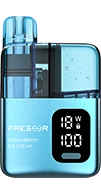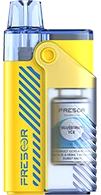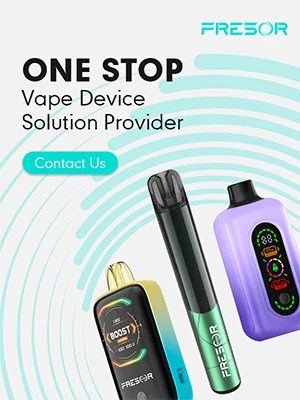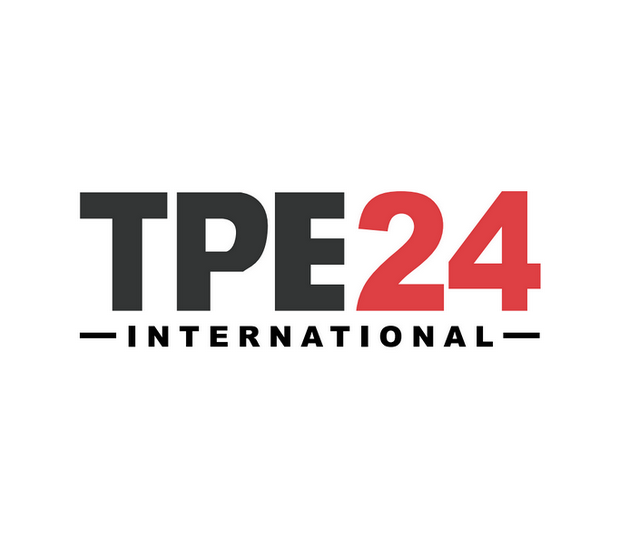Latest Vape/E-Cigarette Restrictions in Argentina 2023

22 August 2023
If you are a vape/e-cigarette business, you may want to pay close attention to the recent developments in Argentina. On March 28th, with little warning and no public discussion, Argentina's government announced new restrictions on vape importation and distribution nationwide. While there has been an apparent crackdown on vaping activities throughout Latin America – ranging from advertising bans in Colombia to packaging bans in Brazil – the new regulations implemented by Argentina have had drastic implications for local businesses.
Current Vape/E-Cigarette Restrictions in Argentina
In a proactive step towards safeguarding public health, Argentina's Ministry of Health has recently taken a decisive stance by imposing stringent restrictions on the importation, distribution, commercialization, and advertising of electronic cigarettes and associated accessories throughout the nation. Health Minister Carla Vizzotti's resolute resolution, published in the Official Gazette, marks a significant milestone in the country's ongoing efforts to mitigate potential health risks associated with vaping and inhaling aerosols.
Heated Tobacco Products (HTPs) and Their Prohibition

The resolution issued by Health Minister Carla Vizzotti squarely addresses the growing concern surrounding Heated Tobacco Products (HTPs), an emerging category of smoking alternatives that combine a tobacco stick (HeatStick) with a battery-powered tobacco heating device. This move is grounded in the Ministry's commitment to prioritizing public health and safety, as extensive research suggests that these products, often marketed as less harmful alternatives, still pose significant risks to users' well-being.
Health Risks and Dependencies
The Ministry's stance is firmly rooted in the proven health risks associated with electronic cigarettes and HTPs. Various independent studies have demonstrated that these devices produce aerosols containing nicotine and several harmful chemicals, including acetaldehyde, acrolein, and formaldehyde. Consequently, these substances have the potential to inflict harm on users' health, with particular emphasis on cardiovascular well-being. Furthermore, the addictive nature of nicotine heightens the concern, with the Ministry emphasizing that the use of these devices not only exacerbates existing cardiovascular issues but can also lead to nicotine addiction, particularly among new users.
A salient aspect of the Ministry's resolution is its concern for the well-being of the younger population. The evidence gathered suggests that novel products like HTPs exert a strong appeal to children and adolescents, making them susceptible to initiation into tobacco use. By restricting the import and distribution of such products, Argentina aims to preserve the substantial progress made in tobacco control, preventing the initiation of tobacco use among young and non-smoking adults.
Future Trends
For vape retailers and businesses operating in Argentina, this resolution necessitates a thorough review of their product offerings and marketing strategies. While these measures are designed to prioritize public health, they also call for a strategic shift in the industry. Staying informed about evolving regulations, adopting responsible marketing practices, and aligning with health-centric initiatives will be crucial for businesses to navigate this landscape.
While it remains unclear how exactly the future of vaping will unfold in Argentina, it is likely that we will see more comprehensive restrictions put into place in the coming years. This could include limits on advertising and sales, as well as regulations on the ingredients used in vaping products. As the industry navigates this ever-evolving landscape, it will be important for stakeholders to work together to ensure that the needs of both consumers and public health advocates are being met.
Restrictions on the Sale & Distribution of E-Cigarettes

Argentina is the latest country to impose restrictions on the sale and distribution of electronic cigarettes. The new regulations, which came into effect in March, aim to protect public health by prohibiting the sale of these products to minors and limiting their availability. This has significant implications for vape retailers and business owners who sell electronic cigarettes in Argentina.
The Age Restrictions
According to the new regulations, the sale of electronic cigarettes is restricted to individuals over the age of 18. This is in line with Argentina's existing tobacco laws, which prohibit the sale of tobacco products to minors. Vendors must verify the age of customers before making a sale and are required to display a sign indicating the age restriction.
Limitations on Advertising
Electronic cigarettes and other vaping products will no longer be allowed to be advertised on TV, radio, or other media outlets in Argentina. The only exception is for shops that only sell vaping products, which can display signs in their storefronts. This restriction is designed to limit the exposure of minors to vaping advertisements and to avoid the normalization of smoking and vaping.
Restrictions on Content, Strength, and Flavorings
The regulations also restrict the content and strength of nicotine in electronic cigarettes. The nicotine content must not exceed 10 milligrams per milliliter, and the maximum volume of refill containers that can be sold is 10 milliliters. In addition, e-liquids must not contain any ingredients that are known to be harmful or cause carcinogens.
Retailers who violate the regulations risk fines and the closure of their businesses. If a retailer is caught selling electronic cigarettes to minors, the fine can be as much as 1 million pesos. Shops that sell adulterated or dangerous products can be fined up to 5 million pesos.
Labeling Requirements for Vapes and E-cigarettes
The labeling requirements for vaping products in Argentina are specifically targeted toward providing detailed information about the contents of each product. The following are just some of the key information that should be included on the product labeling:
- Nicotine concentration: The labeling of vaping products must include the concentration of nicotine contained in each product. This information is critical to ensuring that users are aware of the strength of the nicotine present.
- Manufacturer's details: The name and contact information of the product manufacturer must be visible on the packaging. This information allows for easy identification and communication with the manufacturer in case of any issues.
- Health warnings: Vaping products must also feature health warnings that alert users to the dangers of nicotine and its addictive properties.
- Ingredients list: The ingredients list must detail all components of the vaping product, including any associated risks.
- Place of origin: Every product should include the country of origin of the product.
Packaging
The packaging requirements for vaping products in Argentina are also strictly enforced. While there is no standard requirement as to the shape and size of the packaging, the packaging itself must be labeled and adequately secured. Packaging should also feature child-resistant closures to help prevent accidental swallowing by children.
Compliance
To ensure compliance with Argentina's labeling requirements for vaping products, it is essential to stay up to date with the latest regulations. Vendors should pay close attention, particularly to any changes, to ensure compliance. Additionally, potential importers of vaping products need to meet all the country's labeling and packaging requirements before bringing any vaping product to the Argentine market.
Taxation Rules for Vapes and E-cigarettes in Argentina

The first thing to know when it comes to the taxation of vapes and e-cigarettes in Argentina is that they are subject to VAT (Value Added Tax). This tax applies to the final price at which the product is sold, and the rate is currently set at 21%. It is important to note that this is a national tax, and thus applies equally across all Argentine provinces.
In addition to VAT, there are also specific taxes applicable to the manufacturing and sale of vapes and e-cigarettes in Argentina. These include the Special Tax on the Internal Consumption of Liquids for Electronic Vaporizers and the Special Tax on the Internal Consumption of Cigarettes and Other Products. The former applies to all liquids used for electronic vaporizers, and the latter applies to all cigarettes and other tobacco products, including e-cigarettes and vapes.
There are also additional taxes that may apply depending on the specific type of product being sold. For example, products marketed as medicinal or therapeutic may be subject to additional taxes and regulations. Business owners need to be aware of these regulations and comply with them accordingly.
When it comes to importing vapes and e-cigarettes into Argentina, there are specific regulations that must be followed. The importation of these products is subject to a series of taxes and regulations, including import duties, VAT, and excise taxes. Business owners looking to import these products should work with a knowledgeable customs broker to ensure compliance with these rules.
Penalties for Violating Vape Regulations in Argentina
If you are a vape retailer or business owner in Argentina, it is important to understand the regulations surrounding the distribution and sale of vaping products. These regulations are in place to protect the health and safety of consumers, and failure to comply can result in serious penalties.
Distribution of Unauthorized Products
One of the most significant offenses that can result in penalties is the distribution of unauthorized vaping products. In Argentina, there are specific requirements for the labeling, contents, and packaging of vaping products. Distributing products that do not meet these requirements can result in hefty fines and even the suspension of your business license. To avoid these penalties, ensure that your products comply with all necessary regulations and have been properly authorized for distribution.
Misleading Advertising
Advertising for vaping products in Argentina is also subject to strict regulations. Misleading or false advertising can result in sanctions and penalties. For example, advertising vaping products as “safe” or suggesting that they have health benefits is not allowed and can result in fines or even the suspension of your advertising license. Make sure that your advertising is truthful, clear, and accurate.
Failure to Comply with Reporting Requirements
Vape retailers and business owners in Argentina are also required to comply with reporting requirements related to their products. This includes reporting any adverse health effects related to the use of their products, as well as submitting regular reports on sales and distribution. Failure to comply with these requirements can result in significant penalties, including fines and even the suspension of your business license.
Selling Counterfeit Products
Finally, selling counterfeit vaping products is illegal in Argentina and can result in serious penalties. Not only is it illegal to sell counterfeit products, but it is also unsafe for consumers. Make sure that you only sell authentic products that have been properly authorized for distribution.
Improve Your Vape Brand with TOP Vape OEM/ODM Manufacturer
ALD Vapor, a global leader in vaping industry, is professional in providing one-stop OEM/ODM atomization solutions for vape brands from all over the world since 2009. With over 14 years of experience, over 4000 workers, and 6 factory sites, the company has gained a great reputation among clients and a fast-growing market share.
Bottom Line
Argentina's Ministry of Health's resolute stand against electronic cigarettes and HTPs demonstrates a commitment to safeguarding public health and the well-being of its citizens. This resolution holds far-reaching implications for vape retailers and businesses, urging them to reassess their product portfolios and strategies to align with the evolving regulatory landscape. As Argentina takes the lead in prioritizing health, the industry must adapt and steer toward responsible practices that resonate with these priorities.

























